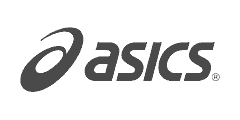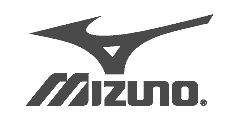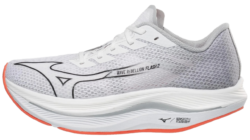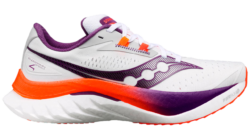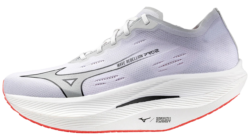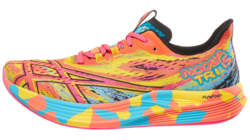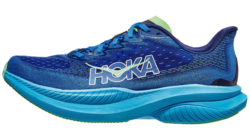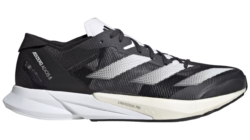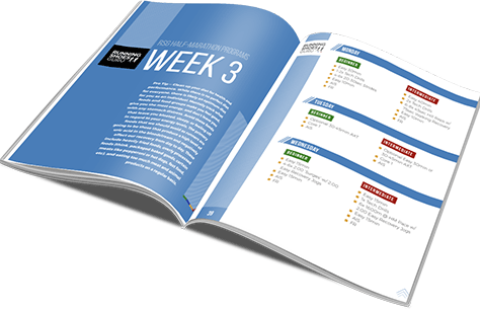The Wave Hitogami is the second level of Mizuno’s low-stack trainer options — behind the immensely popular Sayonara line — and presents a very manageable price point for such an offering.
Throughout the wearing of this shoe, I found it to hit the mark on almost every test I put it through. Continually I looked forward to wearing these shoes, with the exception of double-digit, long runs.
These shoes were not the best I’ve worn, nor were they a shoe that I would call a “go to” for me. However, whenever I pushed the limits in them, they responded the way one would hope they would.
Mizuno Wave Hitogami 3 General Info
Although not the top of the line for Mizuno, the company has packed these shoes with plenty of their technology. The Hitogami competes directly with the likes of the Brooks PureConnect, Saucony Kinvara and Salming Speed.
With its low stack and quick feel, these shoes allow you to push the pedal to the metal and get through hard workouts.
Upon unboxing the shoes, I was struck with the vibrant blue of the shoes and the aggressive look before putting them on.
With my first wearing of the shoes, I felt completely connected to the ground and had a great feeling of every surface I traversed.
They are not very cushioned, which lead toward a faster stride rate. They impressed me with their first showings.
Mizuno Wave Hitogami 3 Sole Unit
The Hitogami offers a variety of Mizuno’s technology in the sole unit. Namely the use of Wave technology — although very lightly — and the U4ic midsole technology to help dampen impact of your stride.
These technologies are made the assist in a runner’s natural gait and turnover. The slight upturn to the toebox of the sole unit help you move through your stride and propel you onward.
Although not nearly as aggressive as the New Balance Vazee Pace, it will still help in the matter.
Mizuno used blown rubber sole pads to help with grip on the road and durability for high mileage. I put 80+ miles on these shoes and they still have the same integrity they did when I pulled them out of the box.
This durability was unexpected at first, but after decent mileage, the rubber still looks to have the same grip as it did on day one.
While on concrete, track or treadmill, the ride of this shoe is smooth and responsive. However, the flexibility and low stack of the cushioning also was one of the biggest negatives with this shoe.
As soon as I took them off the concrete — even onto well-maintained crushed gravel — the shoe didn’t offer enough protection to make the run feel enjoyable.
I love having a good ground feel, but when that turns into me feeling each individual rock — and point of a rock — as I run, then the ground feel has gone too far.
Mizuno Wave Hitogami 3 Upper Info
The upper offers a very breathable and supportive feel. Using Mizuno’s AIRmesh technology, the upper allows air to work its way through the shoe and keep your feet cool throughout your workout.
The drawback to this feature is that on runs in the rain or snow, my feet ended the run very wet.
Featuring a nearly seamless upper, there are no irritation points that I felt through my runs. However, one thing to keep in mind with these uppers is that they are designed to be tighter.
As with most speed trainers, these shoes do not have a very wide toebox, but instead keep a constant support and pressure throughout the upper.
The heel feels locked into the well-designed heel cup and the shoe narrows from there, until is splays slightly into the toebox.
My foot felt fully locked in through the midfoot, but on top of that my toes felt locked in for the duration of my run.
Mizuno Wave Hitogami 3 Conclusions
Overall, the Hitogami shoes were an enjoyable pair in which to run. They responded well to each time I decided to dial up the speed or intensity of my runs.
I wore them for a 10k race and set a new PR — even without training specifically for this race. I loved the way these shoes allowed me to grip and feel the road on my runs and helped me push myself.
The biggest drawback is that the shoes are limited in their usage — at least for a runner like myself (6’3″, 225 lbs). I used these shoes on crushed gravel, grass, single track and cedar trails to very disappointing results.
They were so uncomfortable on these runs that after wearing them once on each surface, I refused to use them again on that surface.
The other limit on the usage for me was on my weekly long run. For runs of up to 10 miles, the shoe was great. However, after hitting double digits, the wear and tear on my legs and feet was too much to comfortably handle.
This might not be an issue for a more svelte runner, as they won’t have as much pounding on their body to begin with.
At $100, the Hitogami is priced at a very competitive point considering the other shoes against which it competes. Although it is not the best speed trainer I have tried — Salming Speed 3 — it is a much more affordable option.
Overall, these shoes left me with two questions for any potential buyer or reader: Are you in the market for a new speed trainer?
Or are you a light-weight, high-mileage runner looking for a good option for races? If you answered “yes” to either of these two questions, then these may just be the shoe you’re looking for.
We thank the nice people at Mizuno for sending us a pair of Wave Hitogami 3 to test. This did not influence the outcome of the review, written after running more than 50 miles in them.
Mizuno Hitogami 3 Price Comparison
This page contains affiliate links. As an Amazon Associate I earn from qualifying purchases.



